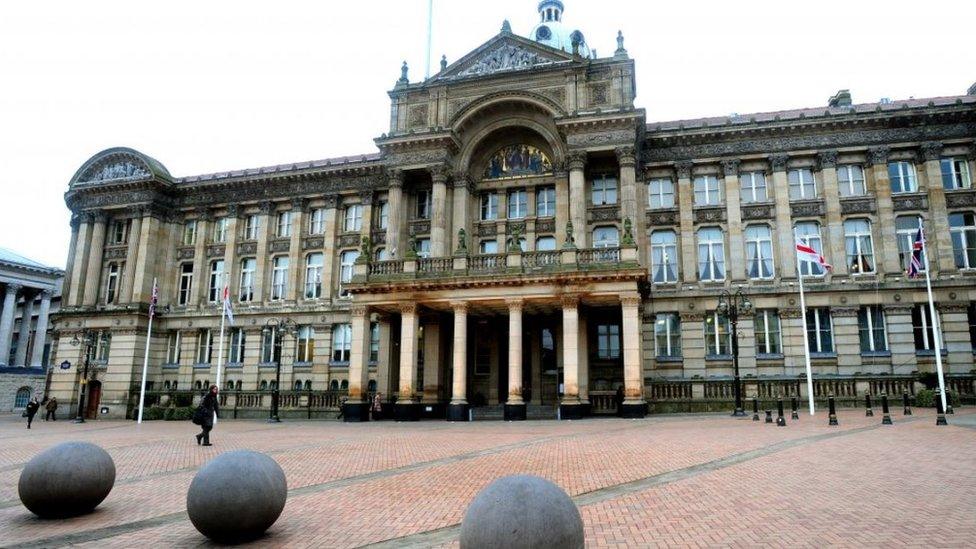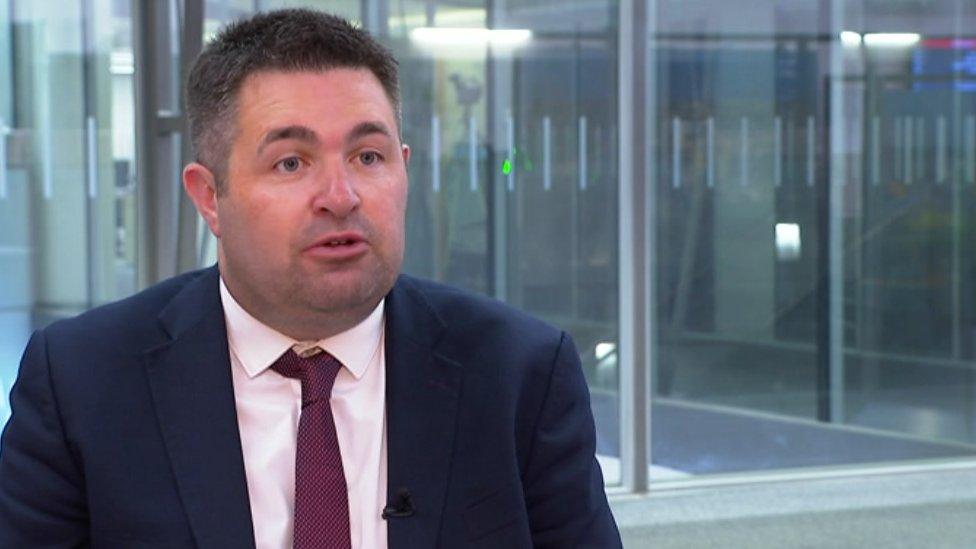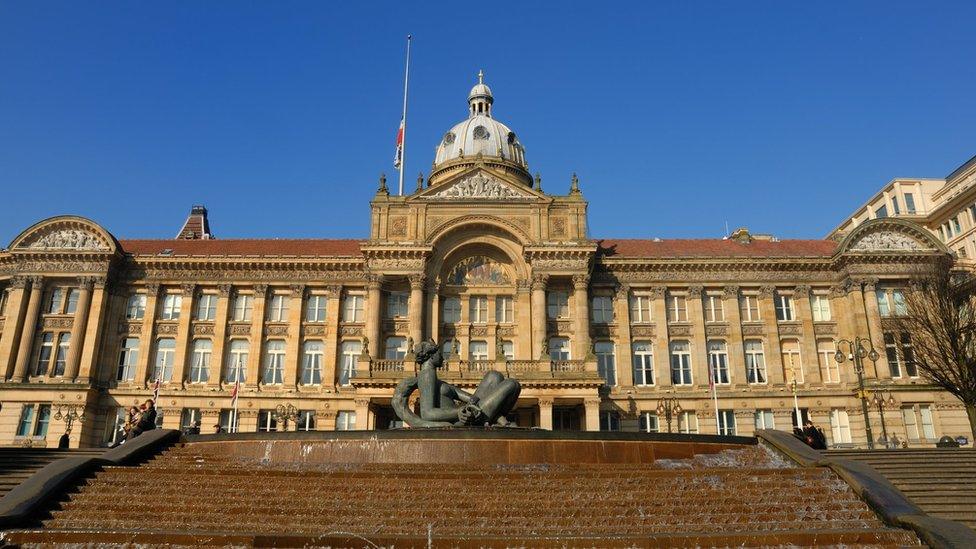'Bankrupt' Birmingham's challenges 'extreme' - leader
- Published

Councillor John Cotton was appointed leader in May
The challenges being faced by Birmingham City Council are extreme, its leader has conceded to members in the wake of a deep financial crisis.
Last week, the authority announced it was essentially bankrupt and all new spending would cease save for delivering essential services.
For the first time since, John Cotton on Tuesday formally addressed councillors at a cabinet meeting.
He told them "tough decisions" were needed to "rebuild Birmingham".
He said: "This is not a speech I ever wanted to give, but the harsh reality is that we are facing extreme challenges.
"These are challenging times, but I will do everything in my power to get us through these challenges, working together with our staff and our citizens."
The authority - the largest in Europe - revealed the extent of its financial troubles by issuing a Section 114 notice; the mechanism by which spending would be strictly curtailed.
The Labour-led council has linked the failure to balance its books with the need to settle a £760m bill for equal pay claims it says it cannot afford to cover.
The administration, also hit by costs relating to the flawed installation of a new IT system, faces an immediate budget shortfall this year of £87m.

Analysis - Rob Mayor, Birmingham political reporter
John Cotton was abroad attending a "longstanding family commitment" when the news broke that Birmingham had issued a Section 114 notice and other than a hastily arranged interview via video call that day, this speech was his first public appearance since the authority he leads effectively declared itself bankrupt.
We now know a budget recovery plan to deal with Birmingham's crippled finances will be presented for approval by councillors on 25 September.
That may be the day we get the first clues on which services will face the worst of the inevitable budget cuts to come.
We also learnt that a panel of experts is to be assembled to help with problems in finance, human resources and, importantly, industrial relations; an area which has been plagued with difficulty at the authority for years.


The council leader insisted Birmingham was still 'open for business'
The financial effect of equal pay liability, Mr Cotton said, had been known for some time and concern of its impact had been "growing" since he became leader in May.
He stressed the city was still "open for business" and criticised actions by central government, saying the authority had seen "cuts to our budget of around £1bn since 2010" and faced challenges over adult social care demand, reductions in business rates income, and "rampant inflation".
He said the authority was speaking with the Local Government Association (LGA) over the problems and would be meeting with Michael Gove, the Levelling Up, Housing and Communities secretary, to discuss a way forward.
"Now, more than ever, we must pull together for the sake of people and communities right across Birmingham," Mr Cotton told the cabinet meeting.
A further meeting to discuss matters is due for 25 September.
Speaking to BBC Midlands Today, Shaun Davies, chairman of the LGA, urged the government to move to a long-term funding model, adding that over the last three years, eight councils had issued Section 114 notices outlining their financial distress.

Shaun Davies called for longer term funding for councils
Mr Davies, Labour leader of Telford and Wrekin Council in Shropshire, said: "This is as a result of a decade or more of underfunding for councils, but also the perfect storm because funding is going down but demand for services is going up."
He said "undoubtedly" more councils would be filing the notices.
A Department for Levelling Up, Housing and Communities spokesperson said councils were ultimately responsible for the management of their own finances.
"Local authorities have seen an increase in Core Spending Power of up to £5.1bn or 9.4% in cash terms on 2022/23," they said.
"This demonstrates how we are standing behind councils up and down the country so they can continue to deliver vital services for local people."

Follow BBC West Midlands on Facebook, external, Twitter, external and Instagram, external. Send your story ideas to: newsonline.westmidlands@bbc.co.uk, external
Related topics
- Published11 September 2023

- Published10 September 2023

- Published8 September 2023

- Published6 September 2023

- Published5 September 2023
